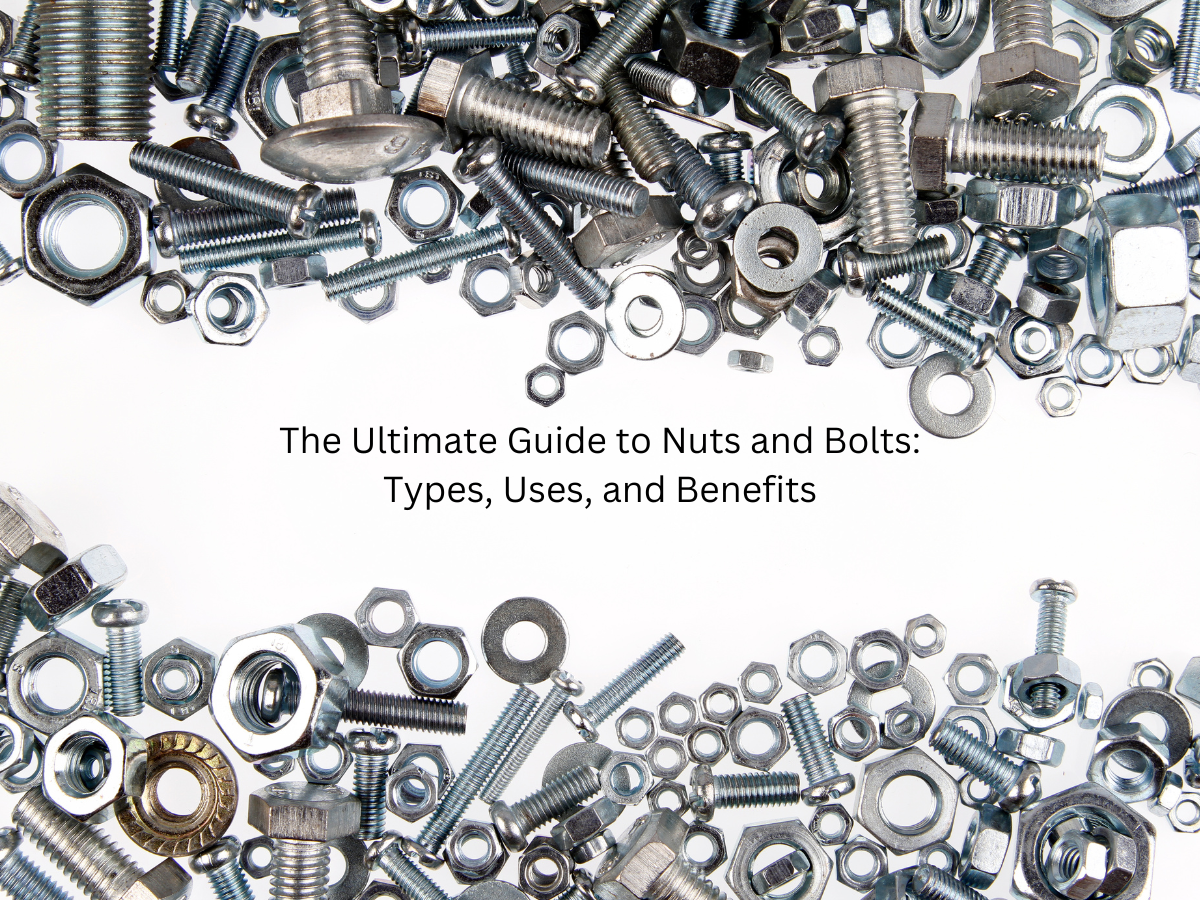The Ultimate Guide to Nuts and Bolts: Types, Uses, and Benefits When it comes to fastening systems, nuts and bolts are the unsung heroes. The
The Ultimate Guide to Nuts and Bolts: Types, Uses, and Benefits
When it comes to fastening systems, nuts and bolts are the unsung heroes. They are essential components in countless industries, from construction to automotive manufacturing, ensuring structural stability and reliability. In this blog, we’ll dive into everything you need to know about nuts and bolts, including their types, uses, and the advantages they offer.
What Are Nuts and Bolts?
Nuts and bolts work together as a fastening system. A bolt is a cylindrical rod with external threads, while a nut is a small, hexagonal or square-shaped piece with internal threads. When combined, they hold objects firmly in place, preventing movement or disassembly.
Types of Nuts and Bolts
- Types of Bolts
- Hex Bolts: Commonly used in construction and machinery.
- Carriage Bolts: Ideal for wood connections.
- Anchor Bolts: Used for securing objects to concrete.
- Flange Bolts: Provide additional surface area for load distribution.
- U-Bolts: Perfect for securing pipes and round objects.
- Types of Nuts
- Hex Nuts: The most commonly used type.
- Lock Nuts: Prevent loosening due to vibration.
- Wing Nuts: Allow hand tightening without tools.
- Cap Nuts: Provide a clean, finished look while protecting threads.
- T-Nuts: Used for securing objects in wood or metal.
Some Link Below
Applications of Nuts and Bolts
- Construction: From building frameworks to bridges, nuts and bolts provide the strength needed for heavy-duty applications.
- Automotive Industry: Essential for assembling car parts, including engines and body components.
- Furniture: Used in assembling desks, chairs, and other household items.
- Aerospace: Ensure safety and stability in aircraft components.
- Electronics: Fasten small devices and circuit boards.
Materials Used in Nuts and Bolts
- Stainless Steel: Corrosion-resistant and suitable for outdoor applications.
- Carbon Steel: Known for strength and affordability.
- Alloy Steel: Ideal for high-strength applications.
- Brass: Resistant to rust and visually appealing for decorative use.
- Titanium: Lightweight and strong, often used in aerospace.
Benefits of Using Nuts and Bolts
- Durability: Made from high-quality materials to withstand extreme conditions.
- Reusability: Can be dismantled and reused without losing functionality.
- Versatility: Available in various sizes, materials, and types for diverse applications.
- Cost-Effective: Affordable solutions for long-term fastening needs.
- Ease of Use: Simple to install and remove with basic tools.
How to Choose the Right Nuts and Bolts
- Determine the Load Requirement: Select a bolt and nut that can handle the weight and pressure.
- Consider the Material: Choose corrosion-resistant materials for outdoor use.
- Check Thread Compatibility: Ensure the nut fits the bolt properly.
- Choose the Right Size: Select a size that matches your specific application.
Maintenance Tips for Nuts and Bolts
- Regularly inspect for signs of wear and corrosion.
- Tighten loose nuts and bolts promptly to avoid accidents.
- Use anti-corrosion coatings or lubricants for added protection in harsh environments.
- Replace damaged or worn-out fasteners to ensure safety.
Some Link Below
Conclusion
Nuts and bolts are the backbone of modern engineering and construction, offering unmatched strength, versatility, and reliability. Whether you’re a professional or a DIY enthusiast, understanding their types, uses, and benefits ensures you make the right choices for your projects.
Need premium-quality fasteners for your business? At Arvind Industries, we provide a wide range of stainless steel nuts, bolts, and custom fasteners to meet all industrial needs. Contact us today for expert advice and top-notch products!
Let me know if you’d like any edits or additional sections!


COMMENTS